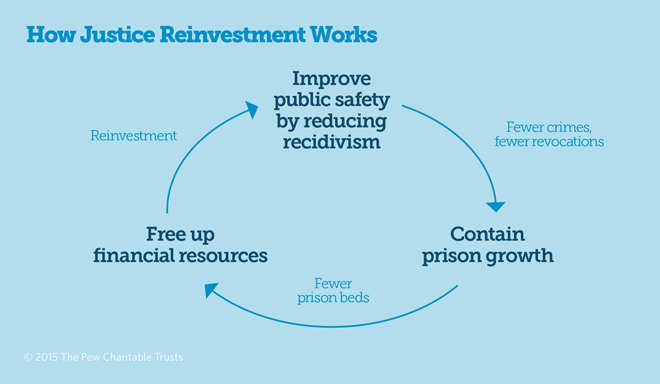31 States Reform Criminal Justice Policies Through Justice Reinvestment
Since 2007, 31 states have reformed their sentencing and corrections policies through the Justice Reinvestment Initiative, a public-private partnership that includes the U.S. Justice Department’s Bureau of Justice Assistance, The Pew Charitable Trusts, the Council of State Governments Justice Center, the Crime and Justice Institute, the Vera Institute of Justice, and other organizations. Although reforms vary from state to state, all aim to improve public safety and control taxpayer costs by prioritizing prison space for serious and repeat offenders and investing some of the savings in alternatives to incarceration for low-level offenders that are effective at reducing recidivism.
Justice reinvestment policies generally fall into four categories: sentencing laws that instruct courts about how to sanction convicted defendants; release laws that determine the conditions for offenders’ departure from prison; supervision laws that guide how those on probation or parole are monitored; and oversight laws that track the progress of these changes.
In the years since the wave of reforms began, the total state imprisonment rate has ticked downward while crime rates have continued their long-term decline. At the same time, states that have enacted justice reinvestment laws expect to save billions of dollars as a result of their reforms.







